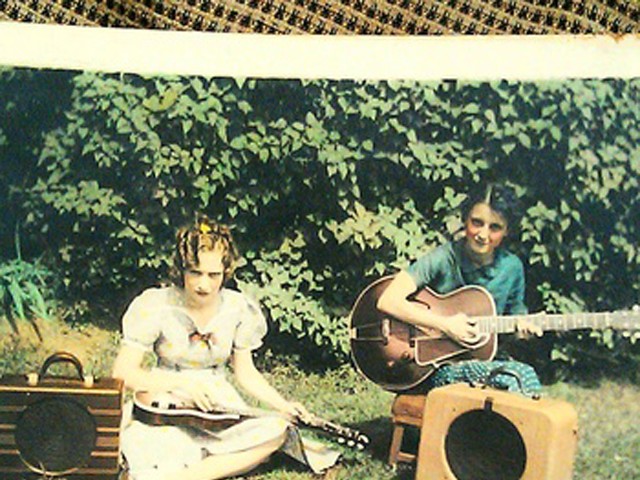Listening to the three blues-rock "garage" tunes that open this stunningly excellent album, the uninformed could be forgiven for thinking that songwriter-guitarist Jack Oblivian (aka Yarber) has definitely borrowed much from the White Stripes. But as Mike Hurtt pointed out in these pages years ago, it's actually Jack White who was informed by the extraordinairy Yarber and his earlier groundbreaking lo-fi ventures out of Memphis with the Oblivians and the Compulsive Gamblers, among others.
The big difference between those two artists, though — and it's a major one — is that following those three blues-rawk excursions, Oblivian then hits the listener with pop-rock hit after pop-rock hit, featuring heart-tugging hook after heart-tugging hook. I dare anyone who loves rock 'n roll, in the classic sense, to listen to "Jealous Heart" and not be instantly smitten. "Dark Eyes" even nicks a melody from Lennon & McCartney's "Bad to Me" as filtered through Johnny Thunders, with the following song borrowing one from a George Harrison classic by way of gospel music as interpreted by a punk rocker. And those guitar solos ... !
Who cares that Yarber mangles the lyrics to Billy Swan & Clyde McPhatter's "Lover Please"? It's only the way Westerberg would have done it, with the spirit and reverence intact. In the end, no matter who it is, it all boils down to what one does with one's influences. And if you've ever believed that rock music is a rich tapestry with magic to be re-tapped and reinvented indefinitely, then any album that, at different moments, might make one think of (seriously!), Talking Heads, Love & Rockets, the Beach Boys, mid-'70s AM radio pop-rock, the girl groups (especially the Shangri-La's), early Stones, the Nightcrawlers' "Little Black Egg," '60s garage funk-soul, the aforementioned Thunders (lots!), the cream of '70s new wave and '80s indierock, in addition to blues distortionists like Jon Spencer and the aforementioned White, is an awfully satisfying one indeed. Contender for rock album of the year. —Bill Holdship





